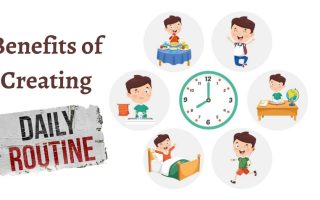The beautiful journey of motherhood is overwhelming…and if your child is hyperactive, then this journey becomes a real roller coaster ride. Emotionally you are always in turbulence because you don’t know exactly how to control your emotions and how to channel your kid’s activities and impulsiveness.
As I have already shared that I am a mother of the naughtiest twin boys, and they are super hyperactive kids…and that keeps me engaged with them all the time. So, in this blog, I will share my experiences and knowledge with you beautiful mommies about how to calm down a hyperactive child and what could be done to channel the kid’s impulsive behaviour.
Understanding The Meaning
First of all, what does it mean to be a hyperactive child? A hyperactive child is full of energy, usually impulsive in behaviour, restless, unstable, quickly moving from one activity to another, and lacks attention span.
What Could be the Possible Reasons Behind this Kind of Behaviour?
I know how difficult it is to manage a hyperactive child, but giving up and behaving negatively is not the way out. We have to be patient in such situations and try to calm ourselves first. So let’s try to understand the reason behind this kind of behaviour.
When The Child Gets Bored
This is the biggest reason for a kid’s impulsive behaviour. If the given activity doesn’t cater to the child’s interest, they become impulsive.
Lack Of Physical Activity
That’s right… lack of physical activity in tiny tots. Children are supposed to be full of energy and active all the time. Therefore if a child is asked to be still or restricted from playing, that definitely will result in impulsive behaviour of a child. And after-effects will be hyperactivity.
Stress
Yes, a child can also get stressed, and the resulting behaviour will be in the form of impulsiveness and hyperactivity. Stress can be due to repetitive instructions from the elders or missing a favourite toy, which can annoy the kid.
📣 Loved what you read? Want to go deeper into conscious parenting? ✨ The Power of Manifestation in Parenting is now available — A soulful guide packed with real-life tools like affirmations, energy shifts, and sleep talk that I personally use with my son, Hitarth. 💛 Start your journey toward calmer, connected parenting today. 🎉 Launch Offer: Only ₹99 (limited-time price!) 📲 Instant download. No waiting. 👉 Grab your copy now!.
Illness
If a child is sick or due to long-term illness, the behaviour pattern changes drastically, which may result in impulsiveness.
Underlying Medical Conditions
Some physical and mental conditions can cause hyperactivity in a kid and lead to impulsive behaviour. Some physical conditions such as hyperthyroidism and mental conditions such as ADHD can result in this behaviour.
Change In The Surrounding Environment
Any change in a kid’s surrounding environment might make them impulsive and hyperactive. Change can be positive or negative, such as residence shift, welcoming a new family member (newborn baby), school admission, etc.
Trigger Factors
Many trigger factors are responsible for a kid’s impulsive behaviour; loud noise is one of those factors. Here are some Tips & Toys To Teach to Develop Self-Control In Kids.
Lack of Sleep
Lack of sleep results in an extreme response in both adults and children. While in adults, it might lead to laziness and tiredness, in these tiny humans, lack of sleep may enhance their hyperactivity and make them restless and irritable.
Lack of Nutritional Diet
A balanced and nutritional diet is essential for the proper functioning of the physical and mental little human body. If a child keeps on munching all the junk food all day long that has high salt and sugar, we can’t expect that little wonder to be calm and composed.
Hunger
Hunger, not just in children but also in adults, almost always leads to impulsive behaviour…and yes, we all can relate to it.
High Sugar Intake
High consumption of sugary food can be one of the reasons for hyperactivity in tiny humans.
While there are no specific ways to handle a hyperactive child, trying a few tips and strategies can solve the problem and make it easier to cope with this situation.
So What are the Strategies? Let’s talk about that now…
Orderly Arrangement
If a child is hyperactive, their little mind will be confused in a messy or unorganized environment. So making a schedule is essential.
Positive Reinforcement
I always mention that positive reinforcement doesn’t mean bribing; instead, it means rewarding. Actually, completing a task or activity for a hyperactive kid is a real struggle. So ask the kid to complete a task or activity properly, and after the completion, reward the kid. This will further motivate the little curious mind to stay calm.
Avoid Distractions
External distractions can disturb the behaviour of a hyperactive child. So to calm down the impulsiveness of your kid, you need to minimize or altogether avoid the trigger factors.
Have A Talk
Always discuss their behaviour and its effects with your lovely kid. Make them feel involved and responsible. This can also calm the child’s impulsiveness.
Lowering Your Expectations
Lowering your expectations of your child’s behaviour can do wonders. So educate yourself first about the age-appropriate behaviour of the child and your expectations. For example, asking a toddler to sit in one place for hours is impractical.
Breathing Exercise
I know for a little human practising breathing exercises can be a task but trust me, if you show the kid by doing it yourself regularly, the kid will also start following. And this will calm the hyperactivity and impulsiveness of a child for sure.
Increase Your Child’s Productivity
The parents need to recognize the strong assets of their children to increase their engagement and productivity. By doing this, their energy can be channelized in the right direction. Here are the 7 Effective Games & Activities To Handle Hyperactive Kids.
Seek Medical Help
Finally, if you feel that you need medical help, don’t waste your time and consult your paediatrician.
Take Away Points
Let me tell you one more thing being hyperactive and impulsive is quite normal and natural for all the children. It is normal human behaviour and, to some extent, a part of learning also. So as a doctor, I have one piece of advice for all my readers, it’s absolutely wrong to diagnose your kid with ADHD all by yourself. If you suspect anything like this, always make an appointment with your paediatrician.
So let’s meet next time with a new topic. Keep learning…Happy Parenting.
Your comments and shares do more than just support our blog—they uplift the amazing moms who share their stories here. Please scroll down to the end of the page to leave your thoughts, and use the buttons just below this line to share. Your support makes a big difference!



